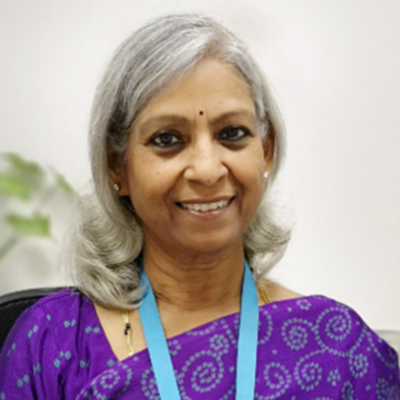
Vidya Basarkod
MD
Ramboll India and Director, Ramboll Engineering Center
Vidya Basarkod is a civil engineer by profession with a Masters in Structural Engineering from Indian Institute of Technology, Mumbai. She brings over 40 years of rich work experience in civil engineering, urban infrastructure, integrated urban transport, airports planning and management, engineering global work-sharing, real estate sales and marketing, integrated and golf-centric townships, business management and public-private partnerships.
Vidya is the Managing Director of Ramboll in India & Director of Ramboll Engineering Center. She spearheads the India business strategy, key account management and cross-functional collaboration for infrastructure projects, business development, global work-sharing, and Public-Private Partnerships. She has been delivering large and complex infrastructure projects in India as well as in Ramboll strongholds in Europe – Denmark, Finland, Norway, Sweden & the UK – in sectors spanning Transport, Buildings, Water, Climate Change, and Sustainability.
Vidya’s proven track record as an engineering visionary is undisputed and her knowledge of the market are surpassed only by her ability to lead a team of 2000 professionals towards a common goal of sustainable engineering practice. Her passion for engineering and her demonstrated strong leadership aligns well with the core values of Ramboll and supports long-term growth aspirations of the company.
Vidya has held senior leadership positions in Mott McDonald, Reliance and the Jaypee Group and is one of very few women engineers in India to be felicitated with the ICE Fellowship, the highest grade of membership of the Institution of Civil Engineers, UK, that recognizes her significant contribution as an engineer to the society. The Fellowship enables her to share her expertise on ICE platforms with engineers from across the globe, help influence government policy as well as mentor other members of ICE. She is also a Fellow of the Institute of Directors in India.
Vidya combines her engineering thought leadership with her other passion – Corporate Social Responsibility – Social upliftment, skill development of women and sustainability is a high priority practice for her as she firmly believes in the cause of women empowerment and respecting the environment. She has contributed and supported various CSR initiatives for girl child education as well as green and sustainable initiatives.
